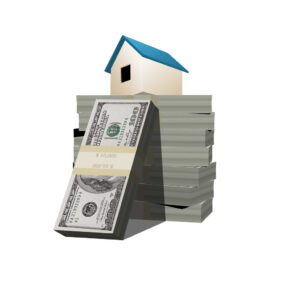

Homebuyers demand for pre-approved loans high despite chaotic market
CanadaNews Dec 12, 2021 Krystyna Shchedrina

Home buyers are rushing into loan pre-approvals, fearing the overheated market will be aggravated by a sharp rise in housing prices and mortgage interest rates.
MNP, Canada’s leading accounting and business consulting firm, has recently released a Consumer Debt Index Report that reads 31 per cent of Ontarian homeowners with outstanding mortgages are “house poor” and regret their debt. Their house-related bills are paid, but they don’t have enough money left over for living. However, many aspiring buyers are still rushing for mortgage pre-approvals, fearing the era of low-interest rates is coming to an end, as the country recovers from the pandemic.
CIBC’s note to investors published on Nov.4 indicates that even a one per cent increase in mortgage (from current rates) can lead to Canadian homebuyers spending an extra 12 per cent in monthly interest payments.
With prices skyrocketing due to the overheated market, Andrea Bellamy, a mortgage agent at Mortgage Edge, says an increase in the mortgage rates should definitely be expected soon. However, she says this will help stabilize the market.
“Right now, I see our house prices increasing because people who have sold in Toronto have more cash, and they have more bat buying power out this way. So they kind of bid of our houses in this area and increase the prices. But as far as rates, they’re almost the same across the board,” says Bellamy.
Currently, the interest rate has been fixed at 0.25 per cent since March 2020, but the Bank of Canada has announced its plans to increase it as Canada’s economy moves toward recovery. However, BMO’s recent note to investors says mortgage rates are already crawling higher in the five-year fixed space, and those with contracts in hand have, at best, another month or two to buy something.
According to the Canadian Real Estate Association, the country has faced a nearly 14 per cent increase in home prices compared to last year. At the same time, Toronto Real Estate Board reports house prices increased by 20 per cent this October since last year, outgrowing $1 million.
The demand is very high right now, and Ballamy says this is why the market belongs to the sellers and most of the deals that come through leave no space for the buyers to put any conditions of the purchase.
Consequently, the buyers have jumped into credit pre-approvals to hold on to current prices and rates. However, such demand provokes tougher rules and criteria to qualify for a loan, and the pre-qualifying rate has already been increased to 5.25 per cent.
“Each bank’s criteria is different. Obviously, the better the credit, the easier it’s going to be. Also, the more income a family has, the easier it is to get the financing,” says Ballamy says.
But, according to Statistics Canada, Canadians are already in record-high mortgage depth, over $2.15 trillion in cost and consumer debt.
Ballamy says with rates rising, there could also be foreclosures.
“The other thing is that the government pre-qualified people for the higher interest. So I think they’re going to monitor that – nobody wants to see like foreclosures or people walking away from their homes. The lenders definitely don’t want that. They’ve protected that with increased pre-qualifying rates, knowing that people can afford their homes at a higher interest rate. Because before anybody’s given a mortgage, we use the higher interest rate before giving them the loan. The Bank of Canada did a good thing increasing that qualifying rate.”








